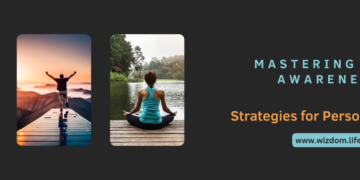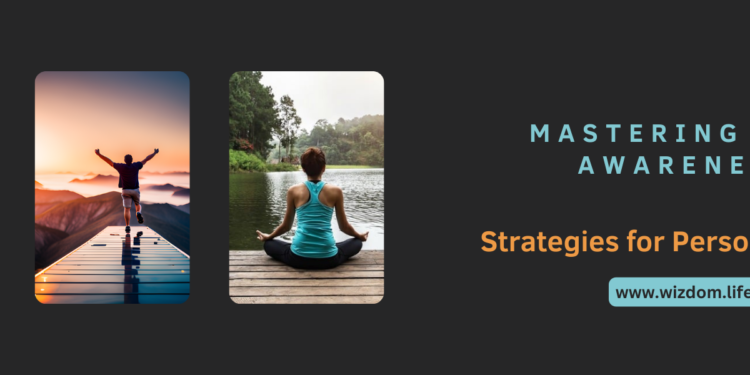Welcome to our blog post on self-awareness strategies! In this fast-paced and hectic world, it’s easy to lose sight of ourselves and become disconnected from our thoughts, emotions, and actions. However, self-awareness is a crucial skill that can greatly enhance our personal development, relationships, and career growth.
Understanding the Concept of Self-Awareness
Self-awareness is a fundamental concept that involves having a clear understanding of oneself, including one’s thoughts, emotions, behaviors, strengths, weaknesses, and values. It goes beyond basic self-knowledge and involves a deep level of introspection and reflection. At its core, self-awareness is about being conscious of our own existence and having the ability to observe and reflect on our thoughts, feelings, and actions. It is the ability to recognize and understand our own patterns, preferences, and tendencies.
Self-awareness encompasses various dimensions:
- Emotional self-awareness: This refers to the ability to recognize and understand our own emotions, including their triggers, intensity, and impact on our behavior and well-being.
- Cognitive self-awareness: Involves being aware of our own thoughts, beliefs, and cognitive processes.
Why Self-Awareness Matters
1. Personal Development
Self-awareness is the cornerstone of personal growth. When we understand our strengths and weaknesses, we can make intentional choices to improve. Here are some strategies to enhance self-awareness:
- Practice Mindfulness and Reflection: Mindfulness helps us stay present and observe our thoughts and emotions without judgment. Regular reflection allows us to gain insights into our behavior and motivations .
- Seek Feedback from Others: Feedback provides valuable external perspectives. Ask trusted friends, family, or colleagues for honest feedback about your behavior and communication style .
- Keep a Personal Journal: Writing down our thoughts and experiences helps us process emotions and identify patterns. It’s like having a conversation with ourselves .
- Utilize Self-Assessment Tests: Assessments like the Myers-Briggs Type Indicator (MBTI) or the Enneagram can reveal personality traits and preferences .
2. Interpersonal Relationships
Self-awareness improves our interactions with others. When we understand our emotional triggers, communication style, and biases, we can build healthier relationships. Here’s how:
- Recognize Emotional Patterns: Notice how you react in different situations. Are you quick to anger? Do you withdraw when stressed? Understanding these patterns helps you respond more effectively .
- Practice Empathy: Self-awareness allows us to empathize with others. When we understand our emotions, we can better understand theirs .
3. Career Growth
Self-awareness impacts our professional success. Leaders who know their strengths and weaknesses can make informed decisions. Consider these strategies:
- Identify Your Values: Knowing what truly matters to you helps you align your career choices with your core beliefs .
- Learn from Mistakes: Self-awareness allows us to learn from failures. Instead of blaming external factors, we take responsibility and grow .
Overcoming Challenges
Self-awareness isn’t always easy. Common obstacles include cognitive biases, resistance to feedback, lack of time for reflection, and emotional avoidance. Acknowledging these challenges is the first step toward overcoming them.
Incorporating Strategies into Daily Life
- Mindfulness: Set aside a few minutes each day to practice mindfulness. Focus on your breath, sensations, and thoughts. Observe without judgment.
- Journaling: Dedicate time to journaling. Write about your experiences, emotions, and insights. Regular journaling enhances self-awareness.
- Feedback Loop: Seek feedback from others and actively listen. Use it as an opportunity for growth.
- Commit to Growth: Embrace self-awareness as an ongoing journey. Be open to learning and adapting.
Conclusion
Whether you’re a beginner or seeking to deepen your self-awareness practice, remember that understanding yourself is a lifelong pursuit. By integrating these strategies into your daily life, you’ll empower yourself to live a more mindful, fulfilling, and authentic life.
Let’s embark on this journey together!
Also read: Online Life Coaching: Enhancing Personal Growth and Well-being
























































